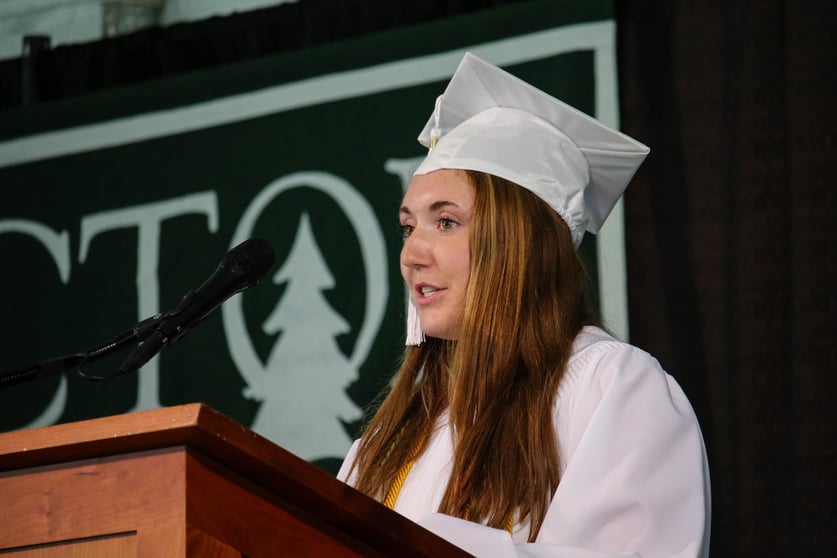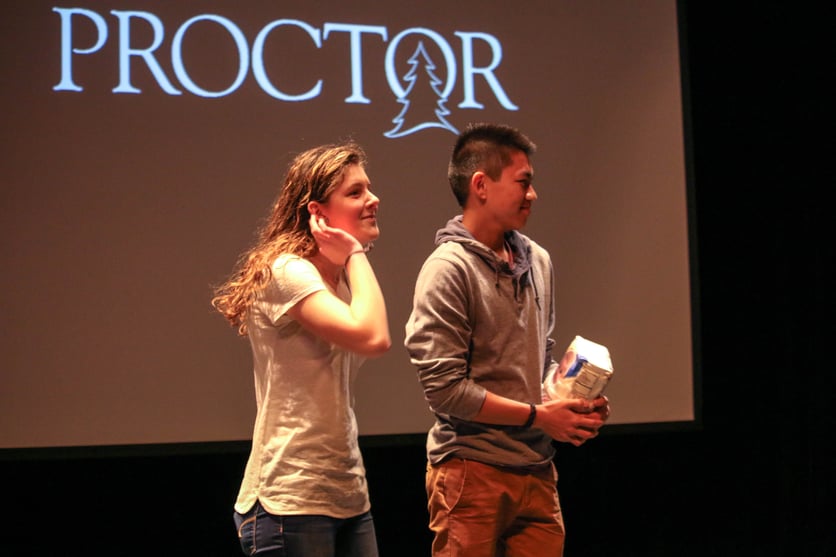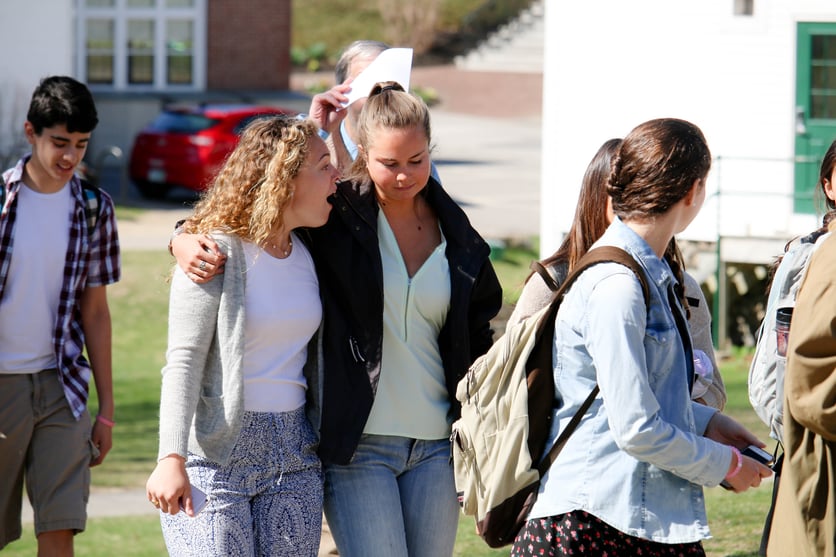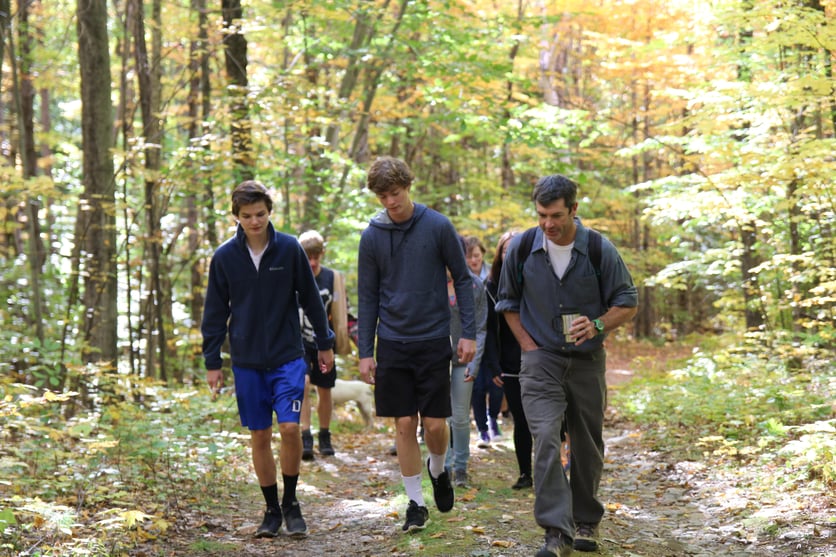Student speeches are a highlight of every Proctor Academy graduation, and this year's speakers did not disappoint! The polished, yet incredibly authentic voices of students provide a treasured informality to graduation ceremonies that mirrors life at Proctor perfectly. Trusting the voices of our students to shape Proctor's culture has long defined who we are as a school, but it's not always easy to trust the wisdom of youth.
Excerpts from Nick '16, Taylor '16, and Maggie '16's graduation speeches (watch the video above!) illustrate the wisdom our students possess. Their appreciation for Proctor’s impact on their own lives and their ability to absorb Proctor’s mission into their very being are encouraging. More encouraging, however, is that these three students are not unique in their possessing these attributes.

Class of 2016 Valedictorian Maggie Royal '16 sharing her words of wisdom earlier this month
The wisdom possessed within our student body is considerable, and because we recognize this, we have set up systems to regularly tap into this wisdom as a school. Student leaders are present at all faculty meetings and meet with Proctor’s Assistant Head of School and Head of School on a weekly basis, open town hall forums take place occasionally in assembly, and informal conversations during advisory periods elevate student voices within the Proctor community.

2016-2017 School Leaders Cope Makechnie '16 and Nick Ho '16
This weekend’s Ted Radio Hour on NPR entitled “Becoming Wise” discussed different moments in our life where wisdom is gained; including through reflective writing, our children, spending time in nature, talking with peers, and simply through life experiences. One of the Ted Talks highlighted was Adora Svitak’s talk (below) she gave when she was twelve years old on the wisdom children are able to share with adults.
At one point in the talk, Svitak noted, “Who’s to say certain types of irrational thinking aren’t exactly what the world needs...How many adults still think like that and imagine the possibilities? In order to make anything a reality, you have to dream about it first. Our audacity to imagine helps push our boundaries of possibility.”

It is this creativity and fresh perspective we must keep at the center of our work as a school. To think we, as adults, have the solution to every problem, know the right rule to pass in order to eradicate an undesirable behavior, or possess the knowledge to answer every question our students ask is a ridiculous assumption. As Svitak implored in her talk, “Learning between teachers and kids should be reciprocal, but this isn’t the reality [in many schools], and that’s because of trust. As history points out, regimes become oppressive when they become fearful of keeping control.”

While (most) students do not view Proctor’s faculty as an oppressive regime, Svitak’s sentiments resonate. As educators, we are in a continuous state of discernment as we determine the right path forward in our classrooms, dormitories, athletic teams, and advisory groups; balancing our own intuitions and experiences with the insights of our students. It is a constantly shifting landscape, and, too often we underestimate the abilities of youth, unintentionally stifling their creativity with our own 'wisdom'. Proctor’s culture has long elevated student voices in the governance of the school, and this year's commencement speeches, combined with Svitak’s Ted Talk, provide a great reminder why we value the wisdom found in the young voices within our community.








